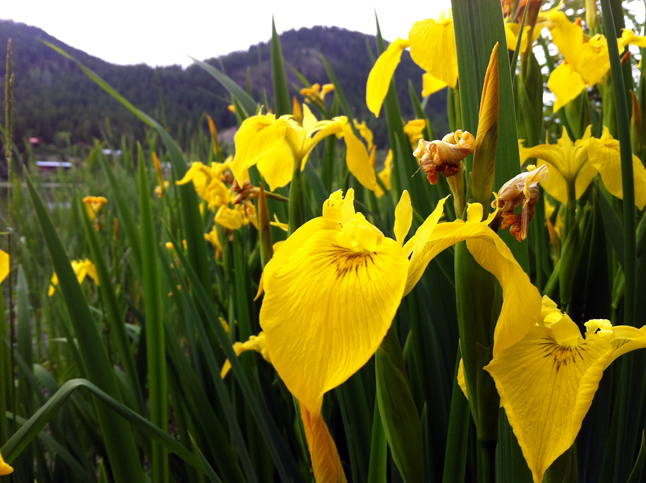
The Columbia Shuswap Invasive Species Society (CSISS) recently celebrated its first birthday, and has been hard at work documenting and taking action on invasive species in the region. Thanks to support from the Columbia Basin Trust and the Columbia Shuswap Regional District, the organization is pleased to kick off its second operational season.
Spring is a critical time to watch out for invasive plants in backyards, farmland, parks and roadsides. As gardeners come out from winter hibernation, CSISS said in a statement that it would like to make sure that seed orders avoid invasive varieties.
“Many weeds are originally introduced as garden flowers, and to this day some gardens continue to be a problematic source of spread” Robyn Hooper, CSISS education and outreach officer, said in the statement, adding that the introduction of invasive species into natural surroundings can have negative impacts on native plants, animals, and even humans.
Prevention is key as it is often an up-hill battle with invasive species. Beautiful ornamentals, such as Yellow Flag Iris, are deceptively dangerous invaders. Their showy yellow blooms are popular with gardeners; however, they can easily get out of control. Yellow Flag Iris reproduce quickly through seed dispersal and horizontal root systems to create dense thickets in ditches, irrigation canals, marshes, stream and lake shorelines and shallow ponds.
“Local groups such as the Little White Lake Stewardship group have been working hard to combat this species and save important habitat for painted turtles,” says CSISS Coordinator Natalie Stafl.
This spring and summer, CSISS will attend a number of public events, as well as host presentations for schools, gardeners, trails users, and other interested groups. For more information or to book a presentation, please contact info@columbiashuswapinvasives.org.
To learn more about invasive plants in our region or find out if your plant list contains any of these invaders please visit www.columbiashuswapinvasives.org or call 1-855-PUL-WEED.



